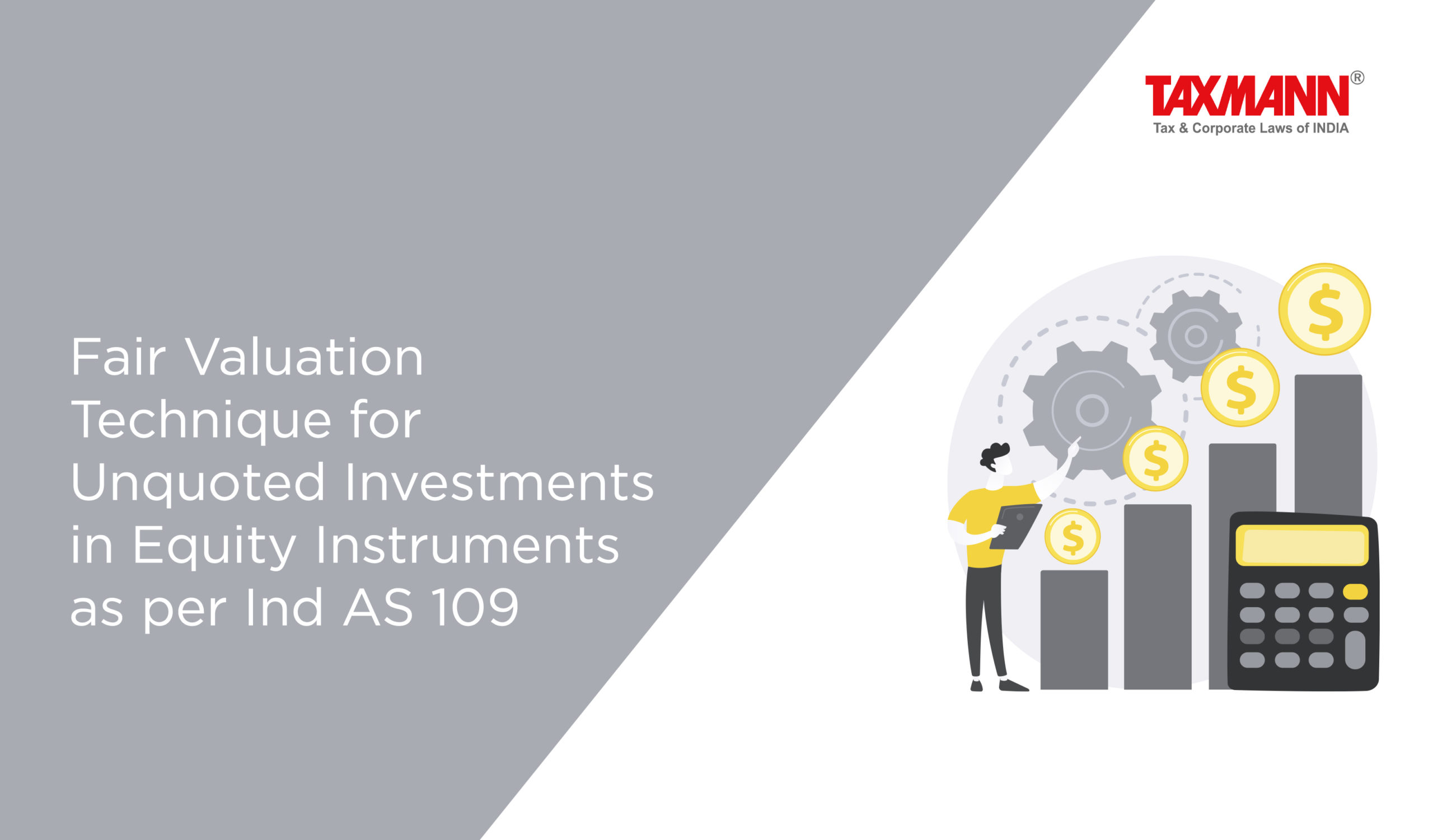Fair Valuation Technique for Unquoted Investments in Equity Instruments as per Ind AS 109
- Blog|News|Account & Audit|
- 2 Min Read
- By Taxmann
- |
- Last Updated on 18 July, 2023

A company engaged in providing technology solutions to strategic users in defense and atomic energy. It holds investments in an unlisted company and values this investment at fair value. As per paragraph 46 of Ind AS 39, after initial recognition, an entity shall measure financial assets at their fair values. Further, paragraph AG74 of Ind AS 39 deals with valuation techniques in case of no active market-related instruments. If the market for financial instruments is not active, an entity establishes fair value by using a valuation technique. Valuation techniques include using recent arms market transactions between knowledgeable, willing parties, if available. Since the ‘Net Book Value’ method is one of the accepted methods for valuation, the Company has chosen this method based on the latest available audited financials of its investment.
However, the auditors objected to the accounting practice of the company and issued an audit query stating that the valuation of investment in equity shares of A Ltd as per the Net Book Value method instead of cost is non-compliance with Ind AS 39. As per Ind AS 39, after initial recognition, an entity shall measure financial assets at their fair values except for investments in equity instruments that do not have a quoted market price in an active market and whose fair value cannot be reliably measured, which shall be measured at cost. Since the equity shares of investment are not traded in the active market the auditor is of the opinion that the company should have measured the investment at cost and not doing so had resulted in overstatement of Investment and thereby other comprehensive income.
The company has approached the Expert Advisory Committee to resolve whether the investment is measured at cost or at fair value while adopting the ‘Net Book Value’ method as one of the valuation techniques to measure the fair value of investments.
Click Here To Read The Full Story
Disclaimer: The content/information published on the website is only for general information of the user and shall not be construed as legal advice. While the Taxmann has exercised reasonable efforts to ensure the veracity of information/content published, Taxmann shall be under no liability in any manner whatsoever for incorrect information, if any.

Taxmann Publications has a dedicated in-house Research & Editorial Team. This team consists of a team of Chartered Accountants, Company Secretaries, and Lawyers. This team works under the guidance and supervision of editor-in-chief Mr Rakesh Bhargava.
The Research and Editorial Team is responsible for developing reliable and accurate content for the readers. The team follows the six-sigma approach to achieve the benchmark of zero error in its publications and research platforms. The team ensures that the following publication guidelines are thoroughly followed while developing the content:
- The statutory material is obtained only from the authorized and reliable sources
- All the latest developments in the judicial and legislative fields are covered
- Prepare the analytical write-ups on current, controversial, and important issues to help the readers to understand the concept and its implications
- Every content published by Taxmann is complete, accurate and lucid
- All evidence-based statements are supported with proper reference to Section, Circular No., Notification No. or citations
- The golden rules of grammar, style and consistency are thoroughly followed
- Font and size that’s easy to read and remain consistent across all imprint and digital publications are applied



 CA | CS | CMA
CA | CS | CMA
